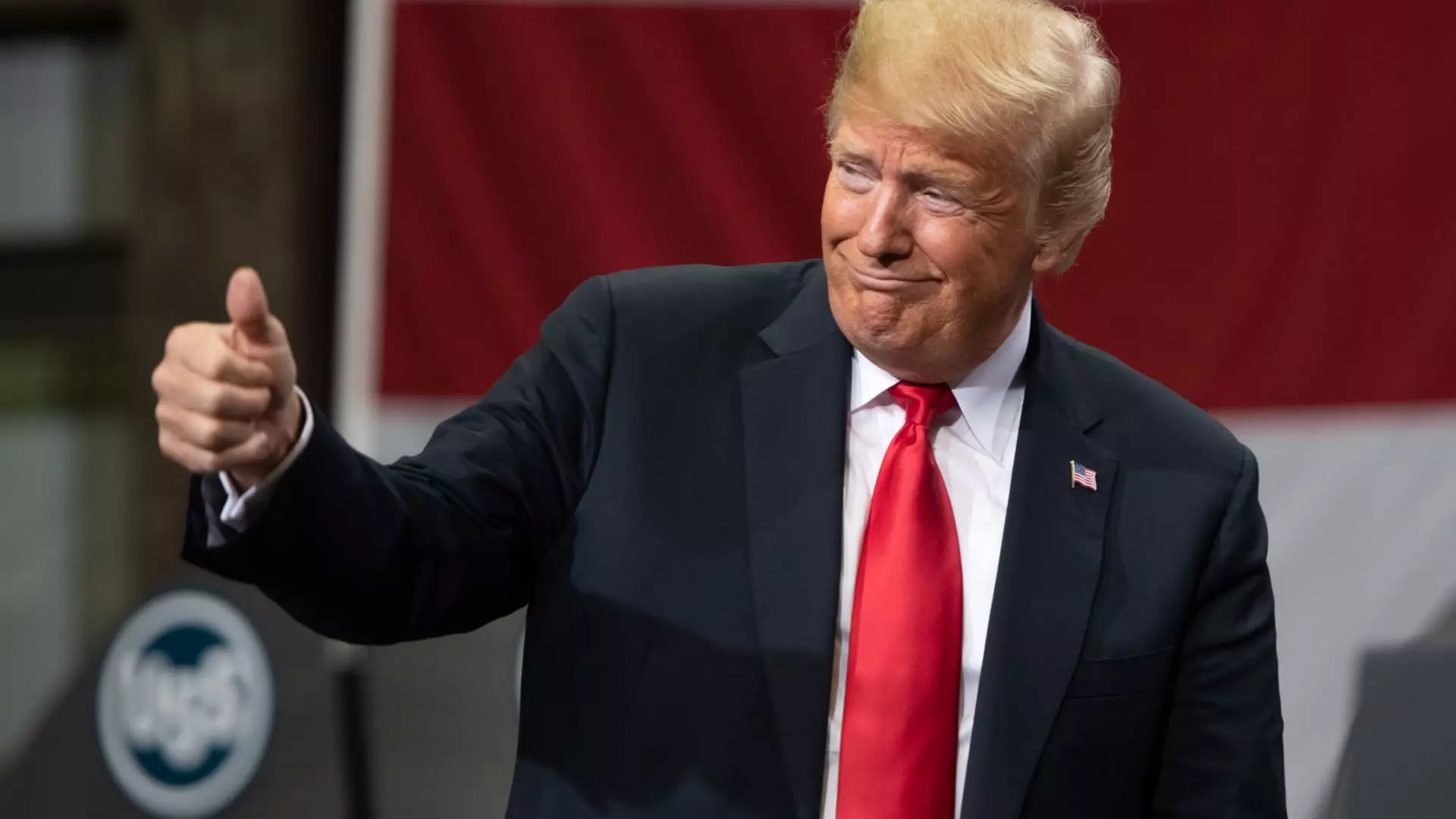In a world where financial markets dance to the tune of political figures, recent events surrounding former President Donald Trump serve as a compelling case study. On a Wednesday morning, as Trump energetically proclaimed it a “great time to buy,” investors saw a spike reminiscent of a rollercoaster ride. Yet, beneath this apparent enthusiasm lies a deeper concern about market manipulation and the ethical implications of such high-profile endorsements. The tidal wave effect of his blunt advice raised critical questions regarding the integrity of financial recommendations made by those in power.
Trump’s Influence: A Double-Edged Sword
Trump’s message wasn’t merely a casual sentiment; it was a calculated statement that reverberated through trading desks across the nation. His call to “buy stocks” just moments before announcing reversals on tariffs had investors scrambling. The abrupt market reversal witnessed later in the day may have temporarily rewarded those who took his advice, but it also revealed the precarious nature of protective tariffs and their economic implications. His statements opened a larger conversation about how politicians can influence investor behavior, potentially leading to concerns over indiscriminate trading practices and the ethical ramifications of such pronouncements.
Economic Aftershocks: A Mixed Bag
For those who heeded Trump’s call, the returns were impressive. The SPDR S&P 500 ETF Trust (SPY) surged noticeably, marking its most substantial one-day gain since 2008. Likewise, shares of Trump Media & Technology soared dramatically, showcasing how intertwined his personal financial interests are tied to the broader market’s performance. The question here, however, is whether these spikes in stock prices reflect genuine market confidence or merely a short-lived, emotionally driven reaction to a politically charged environment.
While a savvy investor could have capitalized on this moment, a center-right perspective suggests that these wins should be approached with caution. Are such strategies sustainable in the long run, or do they represent a façade that could crumble under scrutiny? The dizzying heights of instant gains combined with the broad uncertainty surrounding trade policy can lead to an unpredictable market landscape—one that could leave fewer creditworthy investors behind.
WallStreetBets and the New Age of Investing
In the wake of Trump’s tweet, platforms like Reddit’s WallStreetBets buzzed with chatter, showcasing the democratization of information among investors. One user described themselves as “psychic” for having anticipated the market rise, while others questioned the legitimacy of such movements. The dichotomy of reactions highlights a crucial point: individuals increasingly feel empowered in financial markets. While this empowerment sits favorably within a free-market ethos, it also introduces vulnerabilities to sensationalism that traders may unwittingly succumb to.
Jumping at the chance to buy based on political endorsements can lead not only to ethical dilemmas but also to financial pitfalls for less experienced traders. Is it responsible to act on such impulses driven by emotionally charged politics? As advocates of liberalism within the center-right spectrum, we must grapple with the delicate balance between encouraging free trade and safeguarding investors from volatile market whims.
The Ethical Quandary of Market Manipulation
Calls for increased scrutiny over potential market manipulation arise in the post-Trump market landscape. Comments on forums raised troubling questions about insider trading and ethical conduct. These troubling considerations shouldn’t be swept aside. When influential figures wield their power to sway public sentiment, there’s a moral imperative to question the underlying intent and consequences of such movements.
Investors must navigate these ethically murky waters with both caution and discernment. A liberal economic framework prioritizes significant market structures while ensuring contemporary regulations adapt to changing dynamics of influence. The balance between yielding to market innovation and mitigating risks associated with aggressive speculation should drive policy discussions among legislators.
The whirlwind created by Trump’s stock advice exemplifies the power of public figures in economic arenas. While some may have garnered profits, larger concerns about market integrity loom large. As we stride into an uncertain economic future, the lessons learned from this experience must shape a more responsible and ethical financial discourse. Investors should remain vigilant, combining their instincts with informed decision-making, carefully weighing the fleeting nature of political influence and its real-world ramifications.

